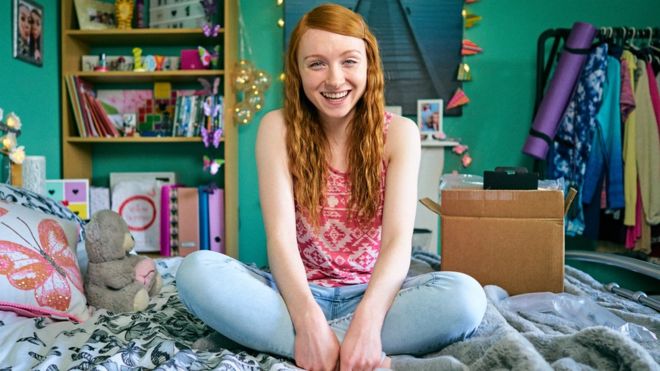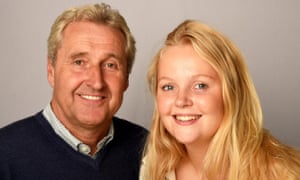I thought I would like to share this video with you if you didn’t see it originally on BBC. How do you think we should help people with diabulimia?
Links
Overshadowed: The BBC3 Vlogging Drama Tackling Anorexia
‘Overshadowed’ – the new BBC 3 mini-drama on anorexia, deals with the difficult portrayal of a horrific illness. The series depicts the brutal reality of anorexia without glamourizing the illness.
Something quite unique to this portrayal, which may ring true to many anorexia sufferers, is the personification of the anorexic ‘voice’. This ‘voice’ is often with the sufferer day and night, speaking to them as loudly and clearly as a real person. As portrayed in ‘Overshadowed’, this voice often starts as a friend – encouraging diet and exercise, praising the sufferer for their weight loss. Many find this comforting. As the illness progresses, the voice turns from friend to foe. The voice becomes critical, malicious. The voice tells the sufferer that they are ‘worthless’ or berates them for ‘lacking willpower’ to practice extreme diet and exercise regimes. It encourages them to distance themselves from friends and family who may be trying to help. Many anorexics will not admit to hearing a voice. But more often than not, it is absolutely there.
NeuroLinguistic Programming (NLP) techniques can help sufferers to actually control this voice in a way that other treatments cannot. At the NCFED we are trained to bring the Voice under control.
It is important to note that this mini-series was filmed over just 12 days and the lead actress Michelle Fox, whilst certainly petite, did not lose any weight for this portrayal. Weight-loss type effects were achieved with make-up and clothing. The script was written by Eva O’Connor, who is a recovered anorexic herself, which may explain why this portrayal of the anorexic experience is more accurate than many others. In fact, Eva personally plays the role of the anorexic voice.
If you or a loved one is affected by any of the issues raised in this program, get in touch with the NCFED for help.
Wasting Away: The Truth About Anorexia
It is a month since Mark Austin made a TV programme about his daughter Maddy’s anorexia. He has done this to point out how hard it is to get treatment when a child begins to waste away. The Duke of Cornwall got involved as well, but has it changed anything very much- not yet. It was brave of Maddy to take part in this programme. I wonder how she really felt about it. I wonder how she is now, if her anorexic voice has gone away.
Mark and his missus told us a harrowing story about how they coped with Maddy’s anorexia. How his wife had to sleep with Maddy to keep her safe, to make sure that she didn’t die during the night. How he told her to go away and die if that was what she wanted, in frustration at how powerless he felt. There is a line in the book ‘Heart of Darkness’ which speaks to me about anorexia. The Horror; The Horror.
We are all so glad that Maddy found the help she needed at an eating disorder clinic in Surrey which nursed her back to health. But I am left wondering exactly what the nurse practitioner actually did and said to her. So I am left frustrated, wanting to know if there is some sort of secret about anorexia recovery that despite all my years of experience, I haven’t found quite yet.
We had a phone call today from a mother whose daughter has anorexia for 7 years. They exist in a tormented relationship, mother trying to help, daughter lashing out, sick husband living on the sidelines witness to a daily living hell. For years I felt I didn’t have the courage to work with anorexia, now I do, I am not afraid to face it. I have to go so deep down to find the person who has become its prisoner, and from time to time come to the surface gasping for air. The air is always there.
Its Hard To Get Help When You’re Not Thin
So many people tell me that their eating problems aren’t taken seriously because they look normal or thin. Ann (not real name) said last week that she felt like a fraud sitting in an eating disorder group because she was the only person who wasn’t thin. She came to see us for an assessment. Afterwards she said
And so I haven’t fully believed that what “I” have is a proper eating disorder but rather what I have is just a problem, that just I have, that no-one has been able to help me with and that I should and will be able to sort out on my own at some point in the future. I realise now that is not the case, I deserve help, which is scary and overwhelming but also exciting and hopeful.
If you want an assessment by someone who understands all the faces of an eating disorder, you can find it here with us.



